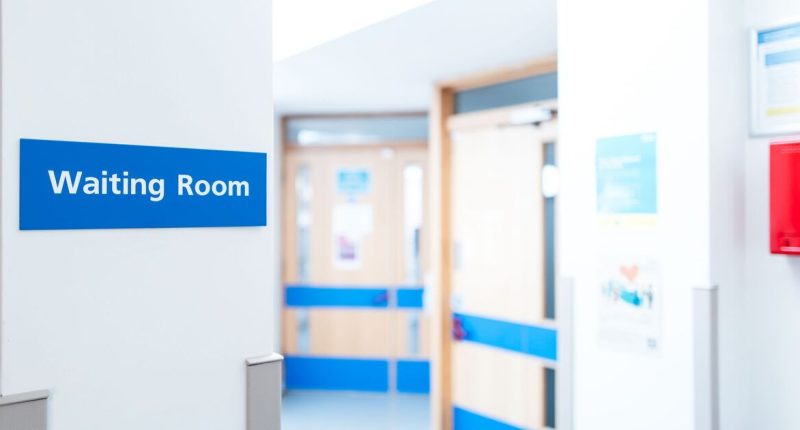Share this @internewscast.com
Senior doctors have said people with cancer are facing a “ticking timebomb” of delays, as the NHS is too short-staffed to deliver prompt care. The lack of radiologists and oncologists means that those with cancer are required to wait a long time for treatments including surgery, chemotherapy, radiotherapy, as well as a consultant reviewing their care.
Reports have revealed that the demand for healthcare is growing more rapidly than the workforce, with NHS services unable to keep up with the increasing need for tests including scans, X-rays, and other treatment. The delays can lead to some people’s cancer speading – increasing the risk of death, the Royal College of Radiologists (RGR) said.
The RCR collected evidence from the heads of NHS cancer centres across the UK and the clinical directors of radiology departments. The information pointed out that delays to potentially “life-saving” care occur because of “chronic” workforce gaps.
Dr Katharine Halliday, RCR president, said: “Patients are being failed by a chronic lack of radiologists and oncologists. Despite the best efforts of NHS staff, there aren’t enough doctors to ensure prompt, safe, and effective care – and the outlook is bleak. We are doing all we can to boost productivity, but there’s a limit to how far we can go. The reality is we simply don’t have enough staff.”
In 2024, every radiology leader in the UK reported delays in diagnostic scans due to a lack of staff. The data causes immense concerns as a patient’s risk of death can increase by 10% each month they have to wait for treatment.
Nine out of 10 cancer centre leaders said patients were delayed starting their treatment last year, while seven out of 10 said they were worried that staff shortages were putting patients’ safety at risk.
Dr Halliday added: “The longer we delay action, the worse it gets. The government must train up more radiologists and oncologists to defuse this ticking timebomb for cancer diagnosis and treatment.”
According to a head of one cancer service, patients with suspected bladder or prostate cancer had to endure long waits to be tested, with over 1,500 patients having to wait longer than they should for a follow-up appointment to review their treatment, and staff were feeling “burnt out”.
Genevieve Edwards, chief executive of Bowel Cancer UK, said: “(Bowel Cancer) is treatable and curable if diagnosed early, but too many patients are facing long delays to start their treatment after going to their GP with symptoms. These delays may lead to the cancer spreading, making it harder to treat successfully.”
The Department of Health and Social care spokesperson said: “This goverment inherited a broken NHS where too many cancer patients are waiting too long for treatment but through our plan for chance, we are determined to tackle delays, diagnose cancer earlier and treat it faster.
“We are delivering 40,000 more appointments every week, investing £1.5bn in both new surgicial hubs and AI scanners, rolling out cutting-edge radiotheraphy machines to every region in the country, and backing out radiologists and oncologist with above inflation pay rises for the second year in a row.
“Later this year we will also publish a refreshed workforce plan to ensure the NHS has the right people in the right place to deliver the care patients need.”













